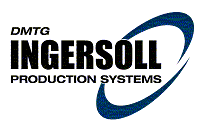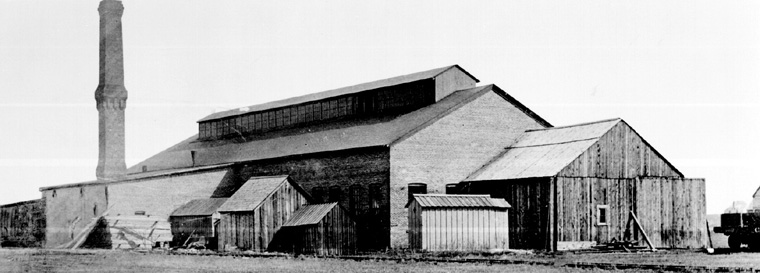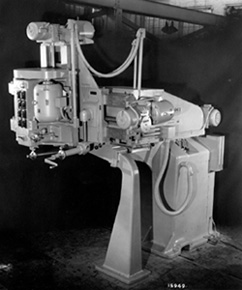

Historical Timeline -- Custom Machine Tool Manufacturer and Systems Integrator

Late 1800's: The Birth of Ingersoll
Judge Jonathan Ingersoll purchased an interest in W.R. Eynon & Co., a local machine tool company in Cleveland, Ohio. In 1887, his son Winthrop Ingersoll took over the business and in 1891, he moved the company to Rockford, Illinois. Ingersoll was born. The first shop was only 50 x 150 feet and employeed 19 people.
.jpg) Early 1900's: The Foundation of Ingersoll
Early 1900's: The Foundation of Ingersoll
From the very beginning, Ingersoll has strived to be the best. In 1906, this drive was demonstrated when Ingersoll completed the largest milling machine of its time. A 157.5 ton mill for GE.
For the first 25 years, the company grew with the boom in the automobile industry and the increased production demands caused by World War I. By 1917, the company employed nearly 600 people.
The company weathered the postwar slump and grew steadily through the 1920's. In 1924 Ingersoll built the first transfer line for the automatic machining of engine blocks. In 1929 the Great Depression struck. Times were tough, but prosperity began to return in the late 1930's. Soon, Ingersoll purchased the Schuman Piano plant and added to their existing facilities.
 1940's and 1950's: Establishing a Legacy
1940's and 1950's: Establishing a Legacy
In response to World War II's massive war production demands, Ingersoll built a 175-ton swivel head boring machine to cut and machine armor plate for naval vessels. It was so effective that the Navy honored Ingersoll with the prestigious "E" Award. The firm also built large-scale machines that were used to manufacture parts for battleships, tanks, torpedo tubes, and antiaircraft gun mounts. It also pioneered the development of carbide cutting tools. By 1942 sales had risen to over $11 million and the company grew to nearly 1,200 employees.
And the tasks Ingersoll undertook grew. In 1953 the company built the largest milling machine in the world for itself. By the late 1950's several more machines were added, making Ingersoll's Rockford facility one of the most modern and productive machine shops in the world.
During this same time, Ingersoll's customer base expanded into the growing aluminum industry and into the manufacture of diesel engines for locomotives.
1960's and 1970's: Becoming a World Leader
The 1960s began with projects to build two large transfer lines for an Opel automobile plant in West Germany, and in 1966, built the world's first transfer line with CNC machines. By 1970 annual sales totaled $37 million, and Ingersoll ranked 15th in US metal cutting tool manufacturers. The firm's acquisition of German companies; H.A.Waldrich of Siegen and Waldrich Coburg marked even further growth and firmly established the company as a dominant international builder of machine tools and complete manufacturing systems.
1980's and 1990's: Leading the World in Manufacturing Technology
Patented the "Octahedral Hexapod" machine in 1985 and in 1996 Ingersoll introduced High Velocity® machines (HVM) which are rapidly transforming the manufacturing process to provide agility and flexibility for many manufactured parts throughout the world. In the 1990's Ingersoll acquired Ingersoll CM Systems and Ingersoll Automation:
- Ingersoll CM Systems has been a specialist in crankshaft manufacturing, design and marketing since 1970. At that time, they were known as CM Systems, founded in Bay City, Michigan. Today they are located in Midland, Michigan USA with their major emphasis on the design and manufacture of the highest quality machinery and systems for crankshaft and camshaft processing in the world.
- Ingersoll Automation has been building custom machines since 1929. At that time, it was known as the Rehnberg Jacobson Company. Then in 1991, it became RAK-Rehnberg, Inc. These names are well known for custom build machines that are used in many industries. During their 90+ year history, they have designed and built thousands of machines, most of which are still in use throughout North America and Europe. In the past ten years, the company has grown to five times it size by expanding their capabilities to meet marketplace demands.